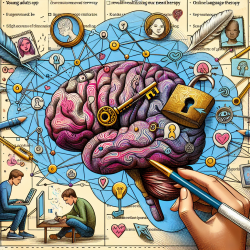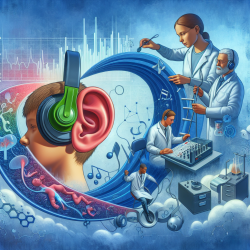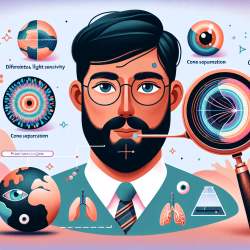As practitioners dedicated to creating the best outcomes for children, it's essential to stay updated with the latest research and tools. The study "Mental Health Literacy in Young Adults: Adaptation and Psychometric Properties of the Mental Health Literacy Questionnaire" provides a robust framework for enhancing mental health literacy among young adults. This article delves into how you can implement the findings from this research to improve your practice and encourage further research.
Understanding Mental Health Literacy
Mental health literacy (MHL) is a critical component in recognizing and addressing mental health issues early. The MHL Questionnaire (MHLq) adapted for young adults aims to assess knowledge, erroneous beliefs, help-seeking behavior, and self-help strategies related to mental health.
Key Findings and How to Implement Them
The research highlights several key findings that can be implemented in your practice:
- Comprehensive Assessment: The MHLq for young adults includes 29 items organized into four dimensions: knowledge of mental health problems, erroneous beliefs/stereotypes, help-seeking and first aid skills, and self-help strategies. Utilizing this comprehensive tool can help identify gaps in your clients' mental health literacy.
- Targeted Interventions: By understanding where knowledge gaps and erroneous beliefs lie, you can tailor your interventions more effectively. For instance, if a client has high erroneous beliefs, focusing on psychoeducation might be beneficial.
- Promoting Help-Seeking Behavior: The questionnaire’s focus on help-seeking and first aid skills can guide you in promoting these behaviors among your clients. Encouraging young adults to seek help and provide first aid can significantly improve mental health outcomes.
- Self-Help Strategies: The MHLq also assesses self-help strategies, enabling you to guide your clients in adopting effective self-help methods.
Encouraging Further Research
While the MHLq for young adults is a validated and reliable tool, it's essential to continue researching and adapting it to different populations and settings. Future research could focus on:
- Validating the MHLq in diverse cultural and linguistic contexts.
- Exploring the impact of different educational interventions on improving mental health literacy.
- Examining the long-term effects of improved mental health literacy on mental health outcomes.
Conclusion
Implementing the findings from the "Mental Health Literacy in Young Adults" study can significantly enhance your practice. By using the MHLq, you can identify knowledge gaps, tailor interventions, and promote better mental health outcomes among young adults. For a deeper understanding, we encourage you to read the original research paper.
To read the original research paper, please follow this link: Mental Health Literacy in Young Adults: Adaptation and Psychometric Properties of the Mental Health Literacy Questionnaire.










